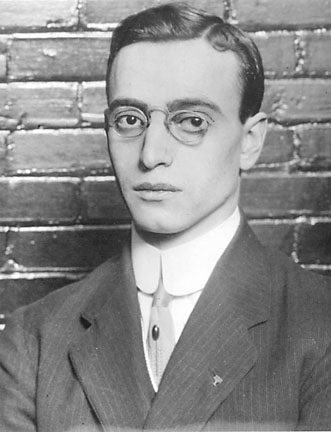Leo Frank (Leo Max Frank)

Leo Frank (April 17, 1884 – August 17, 1915) was an American factory superintendent who was convicted of the murder of a 13-year-old employee, Mary Phagan, in Atlanta, Georgia. His legal case, and lynching two years later, attracted national attention and became the focus of social, regional, political, and racial concerns, particularly regarding antisemitism. Born to a Jewish-American family in Texas, Frank was raised in New York and earned a degree in mechanical engineering from Cornell University before moving to Atlanta in 1908. Marrying in 1910, he involved himself with the city’s Jewish community and was elected president of the Atlanta chapter of the B’nai B’rith, a Jewish fraternal organization, in 1912. Although antisemitism was not locally common, there were growing concerns regarding child labor at factories owned by members of the Jewish community. One of these children was Phagan, who worked at the National Pencil Company, where Frank was director. Phagan had been strangled on April 26, 1913 and was found dead in the factory’s cellar the next morning. Two notes, apparently written by Phagan, were found beside her body, implicating the night watchman Newt Lee. Over the course of their investigations, the police arrested several men, including Lee, Frank, and Jim Conley, a janitor at the factory.
On May 24, Leo Frank was indicted on the charge of murder, with the case opening at Fulton County Superior Court on July 28. The prosecution relied heavily on the testimony of Conley, an admitted accomplice after the fact who many historians consider the real culprit of the murder. A guilty verdict was announced on August 25. Frank and his lawyers made a series of unsuccessful appeals; their final appeal to the Supreme Court of the United States failed in April 1915. Considering arguments from both sides as well as evidence not available at trial, Governor John M. Slaton commuted Frank’s sentence from capital punishment to life imprisonment. The case attracted national press, with many deeming the conviction a travesty. Within Georgia, this outside criticism fueled antisemitism and hatred toward Frank; a crowd of 1,200 marched on the governor’s mansion to protest the commutation. Two months later, Leo Frank was kidnapped from prison by a group of armed men and lynched at Marietta, Phagan’s hometown. The new governor vowed to punish the lynchers, who included prominent Marietta citizens, but nobody was charged. Frank was posthumously pardoned in 1986 by the Georgia State Board of Pardons and Paroles, although not officially absolved of the crime. The consensus of researchers on the subject is that Frank was wrongly convicted. Various media productions have been inspired by the case, such as the films The Gunsaulus Mystery in 1921 and They Won’t Forget in 1937, the TV miniseries The Murder of Mary Phagan in 1988, and the Broadway musical Parade in 1998. Major books on the case include The Leo Frank Case by Leonard Dinnerstein, And The Dead Shall Rise by Steve Oney, and The Murder of Mary Phagan by Mary Phagan Kean, the great-niece of the murder victim.
Born
- April, 17, 1884
- USA
- Cuero, Texas
Died
- August, 17, 1915
- USA
- Marietta, Georgia
Cause of Death
- lynching
Cemetery
- Mount Carmel Cemetery
- Glendale, New York
- USA



